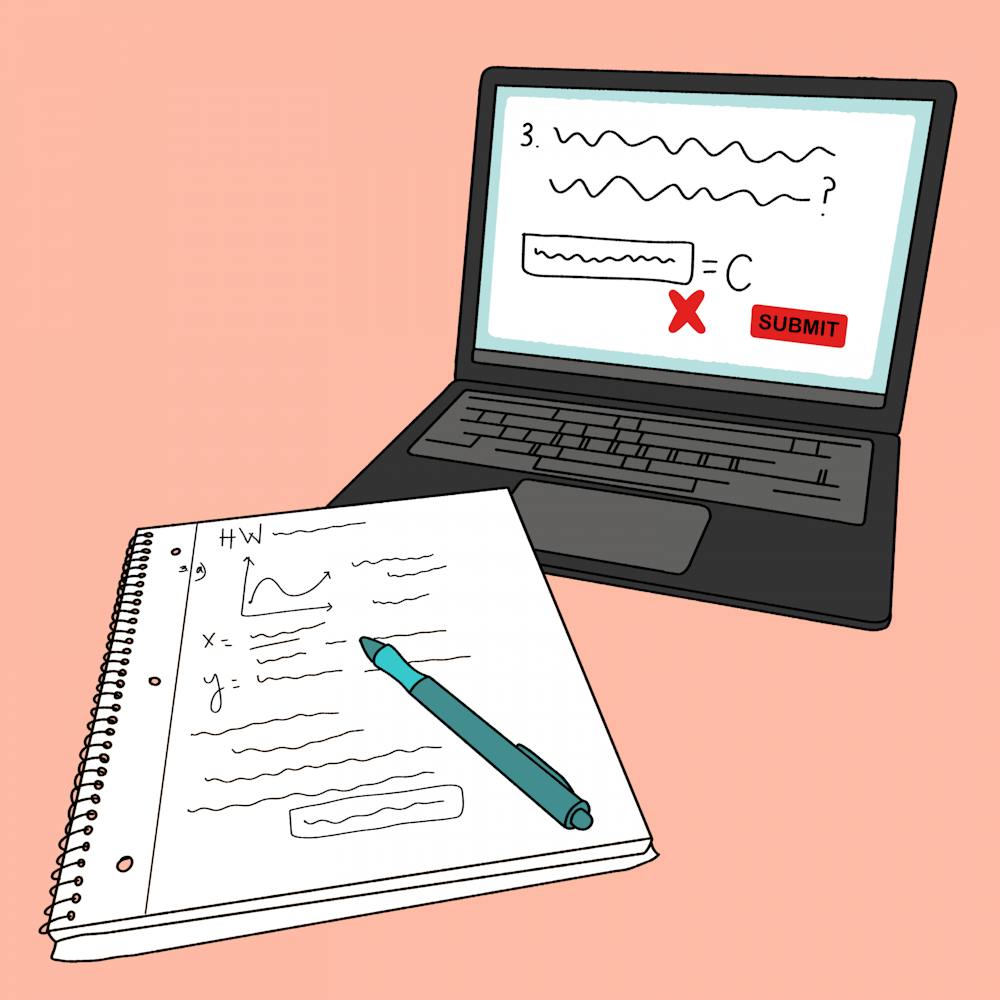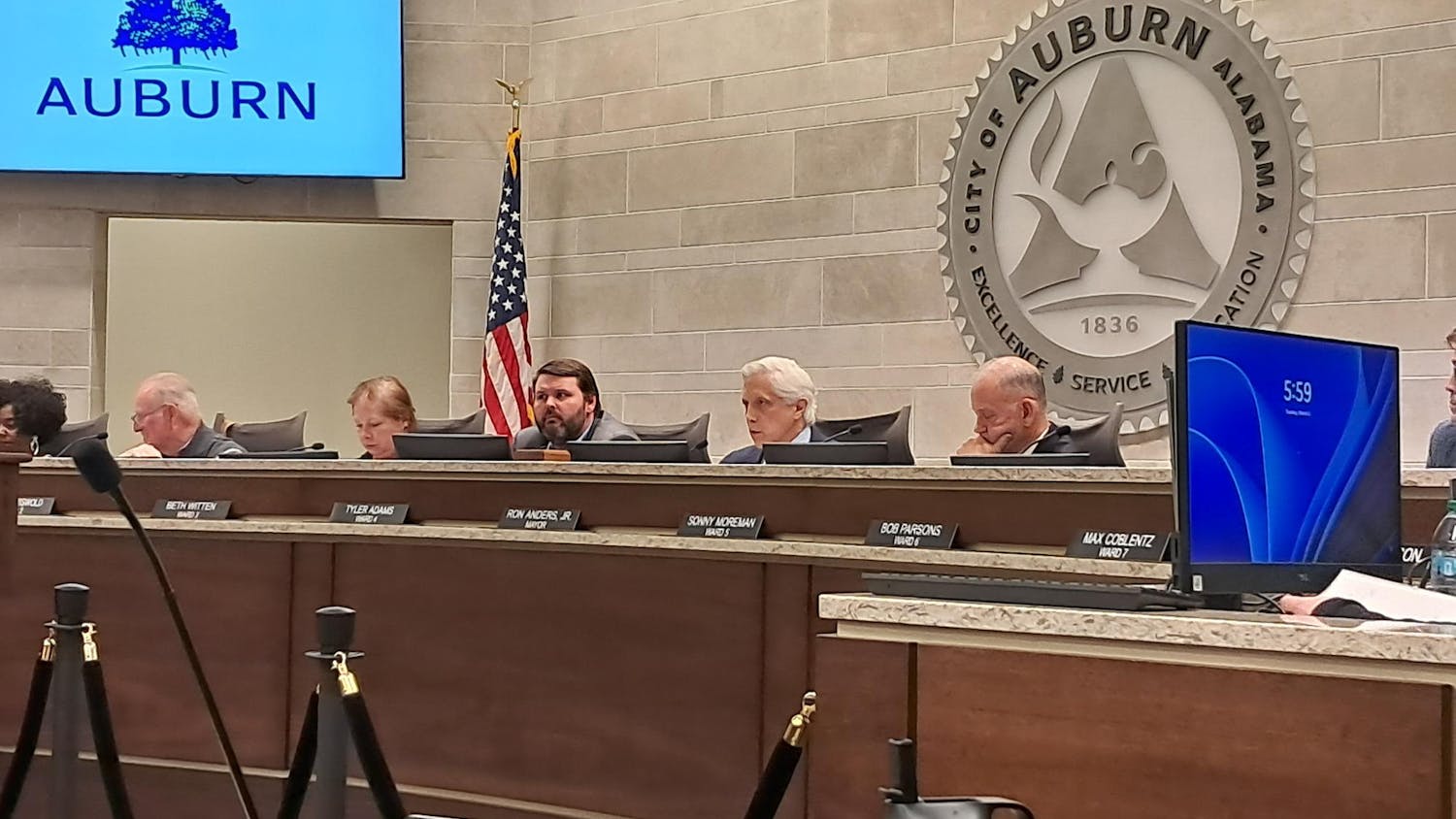As an incoming freshman in chemical engineering, I’d heard of the infamous weed-out classes that give Auburn its reputation for a brutal freshman and sophomore year. I knew which classes I was going to struggle in and why. Although the question of “why?” seemed to grow with each restless night and failed test.
Weed-out classes are common in STEM, especially engineering programs. They are characterized by curricula that are unreasonably laborious or unfairly graded.
The weed-out class I first heard of was Principles of Chemical Engineering — the class meets five times a week and has homework due every class, frequent pop quizzes and test questions the entire class will miss.
My peers in Principles noticed that during the grace period where you can drop a course free of charge, they had pop quizzes nearly every class and homework that took hours.
“For the first few weeks at the end of class [the professor] would scare people into thinking we weren’t going to have a quiz,” said Kathryn McClellan, sophomore in chemical engineering. “At the end of class, he’d be like ‘Clear off your desk like you’re taking a quiz’, and everyone would look around like, ‘If this happens every day this semester, this is not going to be a good class.’”
Despite the stress and pressure of this course, McLellan said she felt she’d learned valuable lessons through her experience in Principles.
“I think part of college is accepting that you can’t know everything,” McClellan said. “You have to get used to the discomfort of not being able to understand everything that’s going on in class.”
But do professors and administrators take things too far?
The students failing these classes are most often underrepresented minorities. According to an article from The New York Times, women, people of color and those from a lower socioeconomic background are the most likely to be weeded out of their classes.
Students who can’t afford the full price of Auburn tuition are attacked further by the threat of a low GPA costing them their scholarship.
“[GPA] is always in the back of your mind,” said Emmanuel Garcia-Carrera, sophomore in industrial engineering. “You’re thinking, ‘Oh if I get too low in all these classes, my GPA is going to drop, and then I lose my scholarship.’ So, it’s added stress.”
Weed-out classes are an old and insidious tradition in academia that is not only a problem at Auburn, but nationwide.
A senior in English at North Carolina State University, Destry Adams, who witnessed his friends struggle in weed-out classes, wrote his own article.
“Most of the people who are taking these classes are either freshman or sophomores and they’re still developing the skills necessary like how to study better or how to pay attention in class,” Adams said. “And when you’re thrust into this notoriously difficult class at the beginning of college it’s very daunting and it sends the wrong message to students saying, ‘Oh I can’t do this therefore I will not be a good engineer’ which may not necessarily be the case.”
When freshmen take courses that tell them they don’t belong in engineering if they struggle, STEM fields lose out on capable minds.
Simona Fine, a columnist and senior in material science engineering and English at Northwestern University, described her experiences in weed-out classes:
“There was one class I was in last year where the whole time my grade in Canvas looked like I was going to fail the class, and then it ended up being curved last minute, but it was very stressful the whole time I was in it because I was like, ‘Oh my God if I don’t pass this, what is going to happen?’” Fine said.
When do weed out classes end? As one of the most selective institutions in Alabama, it’s an achievement to be accepted to Auburn University.
Yet, being accepted is not the biggest hurdle. The second you walk through the door to your first class, you’ve got to prove that you deserve your spot. So, when have we proved ourselves? When will the University and our professors be satisfied with their decision to accept us?
“I was in my junior year of college, and I was still in a class where I felt like the professor had set us up to fail,” Fine said. “I felt like I was going to fail this class and I was like ‘Oh my God, I’m halfway done with the courses in my major … how are they still trying to get rid of me?”
Where does the change start, not just here, but nationally?
We hear students complain; we’re warned by upperclassmen about the horrible classes that await us, and at the end of the day, we struggle through and believe this must be the way that it has to be. But it’s not.
We deserve an environment that fosters education, personal growth and a path toward success.
So, Auburn University, what’s next?
Do you like this story? The Plainsman doesn't accept money from tuition or student fees, and we don't charge a subscription fee. But you can donate to support The Plainsman.

Payton Davis, sophomore pursuing concurrent degrees in mathematics and Spanish, is a photographer at The Auburn Plainsman.





